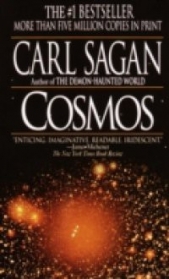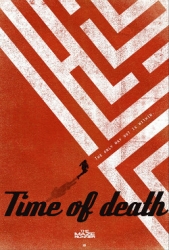Hear No Evil

Hear No Evil читать книгу онлайн
From Publishers Weekly
Miami lawyer Jack Swyteck is in for one hell of a roller coaster ride in this lapel-grabbing thriller, Grippando's ninth (Last to Die; etc.). Lindsey Hart, about to be charged with the murder of her husband, Marine Capt. Oscar Pintado, comes to Jack because she believes he is her last, best chance-and also the biological father of her adopted son. Stunned, Jack thinks he recognizes the picture of the 10-year-old she shows him ("he knew those dark eyes, that Roman nose"), but he still isn't sure whether he should take the case. What if he doesn't and she's innocent? She could be convicted. But if she's guilty-and he takes the case and wins it-he doesn't want to see the child raised by a murderer. Thanks to Grippando's devious mind, that's just the beginning. Plot twists, doled out with perfect timing, include the story of the murder victim, who's the son of a rich and powerful anti-Castro activist; the prosecutor's connection to Swyteck's family; and the testimony of the defense's prime witness, who is a private in Castro's army-the murder took place on the U.S. military base at Guant?namo Bay, Cuba. It's manipulative Lindsey, however, who proves to be the book's most unpredictable element. This character-driven, intricately plotted thriller will keep readers guessing up to the end.
Внимание! Книга может содержать контент только для совершеннолетних. Для несовершеннолетних чтение данного контента СТРОГО ЗАПРЕЩЕНО! Если в книге присутствует наличие пропаганды ЛГБТ и другого, запрещенного контента - просьба написать на почту [email protected] для удаления материала
Because Jack had notified the U.S. government before trial that the defense might call a Cuban soldier as witness, a detailed procedure had been worked out through the State Department to bring him to Miami quickly and smoothly. While a typical Cuban migrant would be forced to pay the Cuban government approximately five years’ salary in cash upon departure for the United States, all it took was Castro’s blessing to get this particular Cuban soldier into Miami overnight. Still, Jack had his doubts. Would the soldier actually come? Would he defect when he reached U.S. soil, recant his testimony, and disappear into freedom? Those doubts followed him all the way into the courtroom.
One way or the other, he knew he didn’t have long to wait.
Jack rose and said, “Your Honor, the defense calls Private Felipe Castillo.”
A shrill cry pierced the courtroom, and a barrage of angry shouts erupted from the galley.
“Order!” the judge said with a bang of his gavel.
The shouting continued, all of it in rapid-fire Spanish. Each speaker had his own message, which made the collective impact indecipherable to Jack’s ears. But he knew they weren’t shouting, Go, team, go!
Federal marshals covered the disturbance immediately. A man and a woman went peaceably to the exit. Three other men had to be handcuffed, their shouts of protest still audible as they disappeared into the hallway. Some of the jurors watched the arrests, horrified. The others kept their eyes on Jack and his client, as if to say, How dare you.
The courtroom had more than its usual rumbling and shuffling of feet, which the judge quickly gaveled down. “That will be the end of that,” the judge said sharply. “Any further outbursts, and I will close this courtroom to all but the media.”
A stillness came over the courtroom, but the tension remained.
“Bailiff,” the judge said, “bring in the witness.”
The bailiff walked to a side door, opened it, and escorted a young Hispanic man into the courtroom. He was dressed in civilian clothes, a suit and tie, as if that would tone down the controversy. Lindsey squeezed Jack’s hand. Spectators moved to the edge of their seats. Jurors sat up rigidly in their chairs. It was as if everyone suddenly realized that they were watching history in the making, or at least something pretty cool to talk about at cocktail parties.
Private Castillo stepped up to the witness stand to take the oath. The bailiff recited the familiar words in English, and then a translator spoke to the witness in Spanish.
“Sí, lo juro. Yes, I swear,” he replied, and then he took a seat. His eyes darted from the judge, to the jury, to the audience. His gaze finally came to rest on Jack, the only familiar face, the least hostile expression in the courtroom.
Jack approached slowly. He wanted the witness to feel comfortable enough to say all that needed to be said to help his client, but coddling him would brand both Jack and his client as Castro-loving communists in the eyes of the jury. He knew he was walking a fine line.
“Good morning, Private Castillo.”
“Buenós,” he said, which was translated to “Good morning.” The translator seemed almost superfluous, since all but one of the jurors was bilingual, and one or two of them probably would have benefited more from an English-to-Spanish translator. It was yet another factor for a defense lawyer to throw into the mix: the jury for the most part would hear each question and answer not once, but twice. Any misstep was a fuckup times two.
Jack moved through Castillo’s background quickly, or as quickly as possible with a translator. There was no way around the fact that he was an enemy soldier, but Jack did his best to downplay the man’s love for the regime, continuing in the question-translation/answer-translation format
Jack said, “Military service is required in Cuba, is it not?”
“Yes, in some form.”
“When were you required to start your military service?”
“As soon as I finished my secondary education.”
“If you had refused to serve, what would have happened to you?”
“Jail.”
Jack purposely skimmed over his duties and responsibilities as a tower guard on the Cuban side of Guantánamo. This was one witness the jury would never warm up to, no matter how long Jack kept him on the stand and tried to personalize him. The best strategy was simply to hit the highlights and then send him home.
“Private Castillo, were you on duty on the seventeenth of June, which was the day of Captain Pintado’s death?”
“Yes, I was.”
“Did you notice anything unusual at the residence of Captain Pintado?”
“Yes, I did.”
“Was this something you observed with the naked eye, or with aided vision?”
“Aided, of course. We have fairly sophisticated viewing equipment. Quite powerful.”
“Would you describe what you saw, please?”
Through a series of questions and answers, the witness repeated the story exactly as he had told it to Jack in Colonel Jiménez’s office. He was part of a surveillance team that watched a portion of the naval base that included officer housing for U.S. Marines. On the morning of Captain Pintado’s death, around five-thirty A.M., he saw Lindsey Hart leave for work, as usual. About twenty minutes later, sometime before six A.M., he saw a man enter the Pintado residence. He didn’t knock. He just went straight inside.
“Was that man wearing a uniform?” asked Jack.
“Yes, he was.”
“What branch of service?”
“ U.S. Coast Guard.”
“Enlisted man or officer’s uniform?”
“Officer, but not very high ranking.”
“Can you describe any of his physical characteristics?”
“Fairly tall, definitely taller than Captain Pintado. Kind of muscular, big shoulders. And he was black.”
“Would you recognize that man if you saw him again?” asked Jack.
“Yes, absolutely.”
Jack returned to his table, and Sofia handed him a photograph. Jack had the clerk mark it as a defense exhibit, handed copies to the prosecutor and to the judge, and then approached the witness. “Private Castillo, I have here a group photograph of U.S. Coast Guard officers stationed at Guantánamo and several other locations within the Coast Guard’s Seventh District. It was taken near the end of last year. I ask you to take a good look at the photograph and tell me this, please: Does the man you saw entering the residence of Captain Pintado on the seventeenth of June also appear in this photograph?”
Torres was on his feet. “I want to object, Judge. We’ve already heard testimony that the man is black. Handing the witness a photograph of mostly white officers and then asking him to pick out the black guy is a joke.”
Jack said, “Your Honor, there are fifty-two black men in this photograph. If the witness can pick out the man he saw from among the fifty-two pictured, that’s more reliable than most police lineups.”
“Overruled. The jury shall decide for itself what weight to attach to any identification, or misidentification, as the case may be.”
The witness seemed somewhat confused with all the translations, but then he focused. Jack said, “Sir, please examine the photograph and tell me if you see the man who entered the Pintado residence on the morning of June seventeenth.”
His gaze roamed back and forth, taking in row after row. Then it moved up and down, as if he were examining the many faces from another angle. The whole process was taking much longer than Jack had expected.
“Private Castillo?” the judge said. “Is the man in that photograph, or isn’t he?”
The translator put the question to him again, and he didn’t react. Jack didn’t show it, but he was beginning to sweat.
“Private Castillo?” the judge repeated.
“Do you see him?” said Jack.
The witness looked up from the photograph. “This is him.”
Jack stepped forward, saw where he was pointing. “Let the record reflect that the witness selected the man in the third row, fifth from the left. Lieutenant Damont Johnson.”






















